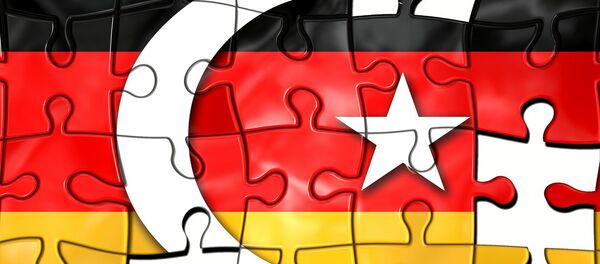The story was broken by German weekly paper Der Spiegel, which claimed that the BND has been spying on both Interpol's national offices as well as Europol, the law enforcement branch of the European Union.
BND, Europol, and Interpol all declined to comment on the accusation. "The federal government gives accounts concerning the intelligence affairs only to the parliament's commissions," a German government spokesperson told the state news agency.
The story comes in the wake of a German parliamentary probe into NSA spying on the German government, including the personal cell phone of chancellor Angela Merkel. Bundestag MP and Greens party member Konstantin von Notz, who is part of the probe, called the BND's alleged activities "scandalous and unfathomable."
"We now know that parliaments, various companies and even journalists and publishers have been targeted, as well as allied countries," von Notz said in a statement. The BND's spying has been traced back to 1999, with reports indicating that they have tapped telephones, fax numbers and email addressees.
He also slammed the Bundestag for their inability to control and regulate the BND.
The probe found the BND has engaged in numerous activities without parliamentary approval, including secret counterterrorism cooperation with US intelligence agencies, tapping international telecommunication networks without approval from Berlin and engaging in economic espionage to help German companies get a leg up over foreign competitors.
According to leaks from Edward Snowden, the BND also assisted the NSA in spying on European politicians and businesses, including the French national government, the European Commission (the lawmaking body of the EU,) and aircraft giant Airbus. Merkel claimed in 2015 that the BND had not engaged in illegal espionage while collaborating with the NSA.
These activities represent "a danger to our rule of law," said von Notz. In response to the probe's findings, the Bundestag passed a law in October 2016 to keep their intelligence agency on a shorter leash.
However, critics of the new legislation slammed it for not including any specific protections for journalists. The new BND law allows German intelligence to spy on foreign nationals, even EU institutions, if the purpose of the espionage is to gather "information of significance for [Germany's] foreign policy and security."
Neither Interpol nor Europol have the power to make arrests. Instead, they work to organize and coordinate law enforcement efforts between member states. With 190 member states, Interpol mostly works in identifying international and war criminals as well as unmasking organized crime rings.




